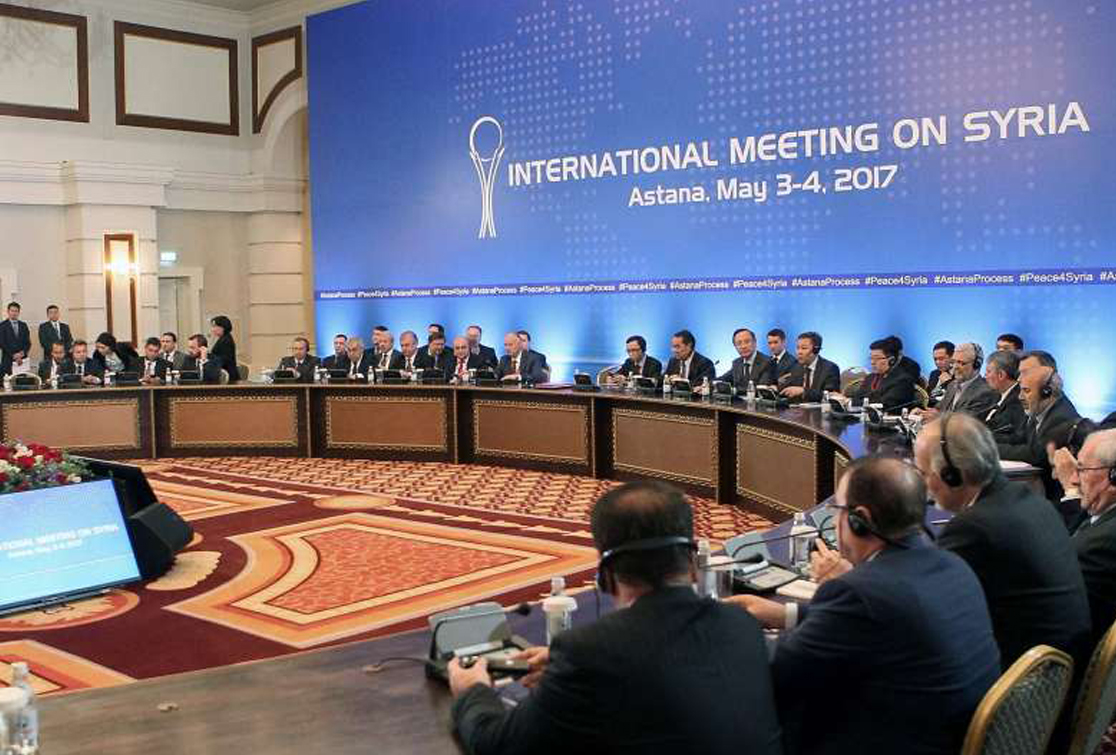The Lowest Month in Terms of Breaches since March 2011

SNHR has released a report in which it documents the most notable breaches to the de-escalation agreement in Syria that were recorded in the first month of the agreement. There were 75 breaches; 91% of which were at the hands of Syrian regime forces.
The report notes that the toll of violations for this month has been the lowest since March 2011, adding that there has been a progress on the humanitarian and human rights fronts in comparison with the violations committed in the past months. The report says that charting maps for the areas excluded from the agreement, establishing a monitoring mechanism, holding those who breach the agreement provisions accountable, and including the national human rights organizations concerned with such matters in the coordination efforts, would remedy the flaws and weaknesses this agreement suffers as well as the other cessation of hostilities agreements.
According to the report, the de-escalation agreement was announced at the end of the fourth round of Astana talks that were held between Russian, Turkish, and Iranian representatives as the sponsoring states of Ankara Ceasefire Agreement. The agreement specified four main zones for the de-escalation – Idlib governorate and the surrounding areas (Parts of Aleppo, Hama, and Latakia governorates), northern Homs governorate, Eastern Ghouta, and parts of Daraa and Quneitra governorates in southern Syria without precisely specifying the borders for those zones. The agreement provided for a cessation of combat operations, a passage of humanitarian aids, and for IDPs residents to return to those areas.
The report outlines the most notable breaches (combat and arrest operations) by the parties bound by the de-escalation agreement (The Syrian-Russian alliance and armed opposition factions) between the date of commencement, Saturday, May 6, 2017, and June 6, 2017 in the four zones specified by the agreement, which are under the control of armed opposition factions or under the joint control of armed opposition factions and Fateh al Sham Front. The report sheds light on the humanitarian aspect without going into the political aspects that led to this agreement. We, as an independent monitoring party, provide the parties relevant to the agreement with the violations we have been able to document by the parties included in this agreement in particular. The report draws upon monitoring and documentation efforts, in addition to speaking with survivors, victims’ relatives, and eyewitnesses to some of the incidents.
The report says that these areas have seen a relatively good and noticeable drop in bombardment rates since the agreement went into effect, which reflected on the living aspects of the residents, as some civilian and medical facilities were renovated as well as infrastructures, while emphasizing that the arrest and torture machine hasn’t stopped and the same goes for deaths due to torture. Arbitrary arrests are still being made as their rates are almost the same in Syrian regime forces-held areas. These arrests are either made at checkpoints or in raids and arrest campaign in areas and neighborhoods. Most of these arrests occurred in random, mass arrest campaigns for the purpose of conscription. Also, we haven’t recorded any unconditional releases from Syrian regime detention centers, where we did document some release, but those releases were part of deals struck between Syrian regime forces and armed opposition for prisoner exchanges, or releasing detainees who are on trial by the counterterrorism court from central prisons after paying huge sums of money, while keeping the detainee on trial.
The report notes that the last humanitarian aids convoy the Syrian regime let to enter the besieged areas is the one that entered Douma city in Eastern Ghouta on Tuesday, May 2, 2017. After that, the Syrian regime blocked all land routes into the areas under siege by the regime itself and no humanitarian aids passed according to the OCHA.
The report breaks down the types of breaches committed, as 47 of those were combat operations: 45 by Syrian regime forces and 2 by armed opposition factions. On the other hand, 28 breaches were arrest operations including 23 at the hands of Syrian regime, while the five others were by armed opposition factions.
According to the report, 196 individuals were killed in the period of time covered by the report, including 108 civilians. Of those, 29 were children and eight were women (adult female), in addition to 88 armed opposition fighters. On the other side, armed opposition fighters killed two civilians, including one woman.
The report calls on the sponsoring parties to accurately chart maps and assign the zones included in the agreement simultaneously with its implementation. And to establish an effective, independent, impartial monitoring mechanism. In addition, the report calls for publishing documented reports and statement on the parties that breach the agreement, and to establish an effective accountability mechanism for those parties.
The report asserts that most of the breaches were committed by the Syrian regime and its ally on the ground the Iranian regime which the report considers to be the two most undermined parties by any political agreement that aims for a comprehensive settlement. The report calls on the Russian regime, as a prime sponsor, to apply pressure on the Syrian-Iranian regime in order to compel it to show serious commitment to the agreement provisions. Otherwise, the agreement is doomed to fail.
Lastly, the report calls on the Turkish government, as a sponsor party, to follows with the breaches by armed opposition factions, and insure it won’t happen again it order to preserve the agreement.


